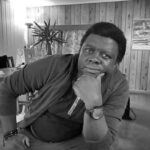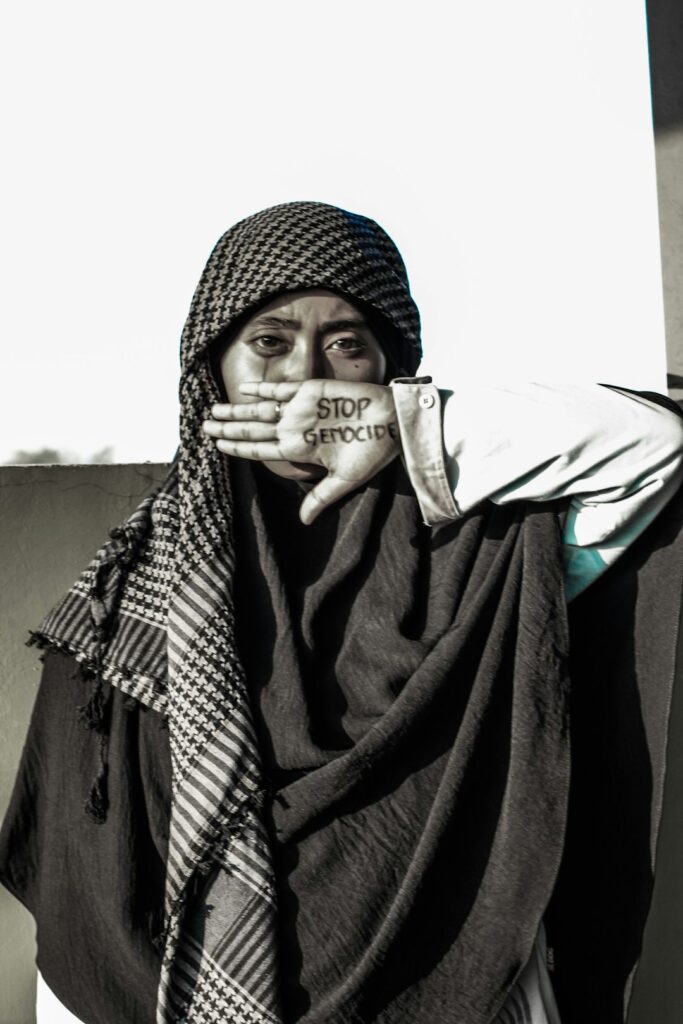Sudan Is Burning — and the World Cannot Remain Silent
TRANSCEND MEMBERS, 10 Nov 2025
Raïs Neza Boneza – TRANSCEND Media Service
31 Oct 2025 – There is a war happening right now.
Not in Gaza. Not in Ukraine.
But right here — in the heart of Africa.
In Sudan.
A war so brutal, so invisible, that over 12 million people have fled their homes.
More than 14 million face hunger and starvation — mothers walking for days with children on their backs, villages erased, hospitals bombed, and entire communities vanished into dust.
Yet the cameras have turned away.
Even our own African newsrooms whisper, if at all.
Behind that silence hides an ancient story — a story of gold, oil, greed, and betrayal.
The Business of War
Do not be fooled — Sudan’s war is not about ethnicity, or tribes, or religion.
It is about ownership — who gets to own Africa.
Who controls her gold.
Who drains her oil.
Who claims her rivers and sells her soil.
Sudan did not collapse overnight; it was dismantled piece by piece, by men and nations who learned that in Africa, power is taken with a gun and traded with a handshake.
General Abdel Fattah al-Burhan commands the national army.
Mohamed Hamdan Dagalo, known as Hemedti, leads the Rapid Support Forces (RSF) — a militia fattened by gold money, foreign weapons, and Gulf ambition.
Once allies, they toppled the dictator Omar al-Bashir.
But they never dismantled the system that made him.
They simply changed uniforms.
Gold and Oil: The Twin Curses
Sudan holds some of the largest gold reserves in Africa — gold that is smuggled daily through secret airstrips, across deserts, into the vaults of Dubai.
Investigations by Amnesty International and Global Witness have traced UAE-supplied weapons — Chinese-made, Emirati-delivered — into RSF hands.
The same UAE that denies involvement is among Sudan’s biggest gold importers.
That gold, melted and refined in Dubai, is sold to the world as “Emirati gold.”
But every bar carries Sudanese blood.
And beneath the soil, another prize glitters — oil.
Sudan and South Sudan together sit on vast petroleum reserves coveted by global investors. Pipelines snake through fragile lands where peace has always been an inconvenience.
Every warlord, every general, every foreign investor knows this:
Peace in Sudan threatens profit.
Conflict guarantees supply.
The Mercenary Machine
This is not a civil war — it is a mercenary market.
The RSF and their foreign patrons have turned Sudan into a battlefield for hire.
Colombian ex-soldiers, Eastern European gunmen, and Ukrainian mercenaries — veterans of other people’s wars — have been quietly recruited through private security networks operating out of Dubai and Eastern Europe.
The same shadow circuits that once filled Libya and Yemen are now flowing into Darfur and Khartoum.
They fight not for flags, but for paychecks.
Their mission: protect the flow of gold, guard the oil wells, secure the land deals.
And the more Sudan burns, the more profitable their contracts become.
A New Colonial Corridor
From Somalia to Eritrea, Djibouti to Kenya, and now Sudan, the UAE and its allies are constructing a new colonial map — a corridor of ports, refineries, and private armies stretching along the Red Sea.
Each port leased.
Each farm fenced.
Each leader bought.
And while African presidents sign deals in five-star hotels, farmers lose their land, children lose their schools, and soldiers lose their lives — not for sovereignty, but for someone else’s supply chain.
This is not aid.
This is annexation by investment.
The Price of Silence
Let us humanize this.
Behind every statistic is a name.
Behind every name is a home reduced to ashes.
Twelve million displaced.
Fourteen million starving.
Millions trapped between two armies and a thousand mercenaries.
Women violated in camps.
Children dying of hunger while Sudan’s gold fuels Dubai’s skyscrapers.
This is not a tragedy — it is a crime.
A crime committed in broad daylight, and in our silence.
Where is the African Union?
Where are the “Pan-Africanists” who love the podium but fear the people?
Where are the presidents who rush to shake hands with warlords, yet cannot utter a word for the victims of El-Fasher and Darfur?
When gold is involved, they show up.
When people are dying, they vanish.
Sudan Is the Mirror
Sudan is not an isolated story.
It is the reflection of a continent betrayed.
The same blueprint is drawn in Congo, Niger, Mali, and Mozambique —
Destabilize. Divide. Extract.
Where there is gold, they bring guns.
Where there is oil, they bring “peacekeepers.”
Where there is fertile land, they bring “investors.”
When the people resist, they are branded rebels.
When they flee, they are branded refugees.
And when they die, it is called a civil war — never what it truly is:
economic control through conflict.
Stand for Sudan. Stand for Africa.
If Sudan falls, Africa will feel the quake.
Refugees are already crossing into Chad, South Sudan, and Egypt.
Weapons are flooding the Sahel.
And foreign powers are sharpening their knives for the next target.
This war is not just about Sudan — it is a warning.
Africa cannot keep feeding the world while starving her people.
We cannot keep exporting gold while importing hunger.
We cannot keep hosting mercenaries while burying our children.
So raise your voice.
Artists, write for Sudan.
Journalists, report Sudan.
Citizens, speak for Sudan.
No more neutrality.
No more silence.
Because when history asks, Where were you when Sudan burned?
We must be able to answer:
We stood with the people. We stood for Africa.
Peace in Sudan is not a dream — it is a demand.
But it will not come from foreign hands, nor from men who profit from chaos.
It will come when Africa wakes up to its worth — when our gold, our oil, and our dignity are no longer traded for guns.
Until then, the struggle continues.
And the call remains:
Stand with Sudan. Stand for Africa.
____________________________________________
 Raïs Neza Boneza is the author of fiction as well as non-fiction, poetry books and articles. He was born in the Katanga province of the Democratic Republic of Congo (Former Zaïre). He is also an activist and peace practitioner. Raïs is a member of the TRANSCEND Media Service Editorial Committee and a convener of the TRANSCEND Network for Peace Development Environment for Central and African Great Lakes. He uses his work to promote artistic expressions as a means to deal with conflicts and maintaining mental wellbeing, spiritual growth and healing. Raïs has travelled extensively in Africa and around the world as a lecturer, educator and consultant for various NGOs and institutions. His work is premised on art, healing, solidarity, peace, conflict transformation and human dignity issues and works also as freelance journalist. You can reach him at rais.boneza@gmail.com – http://www.raisnezaboneza.no
Raïs Neza Boneza is the author of fiction as well as non-fiction, poetry books and articles. He was born in the Katanga province of the Democratic Republic of Congo (Former Zaïre). He is also an activist and peace practitioner. Raïs is a member of the TRANSCEND Media Service Editorial Committee and a convener of the TRANSCEND Network for Peace Development Environment for Central and African Great Lakes. He uses his work to promote artistic expressions as a means to deal with conflicts and maintaining mental wellbeing, spiritual growth and healing. Raïs has travelled extensively in Africa and around the world as a lecturer, educator and consultant for various NGOs and institutions. His work is premised on art, healing, solidarity, peace, conflict transformation and human dignity issues and works also as freelance journalist. You can reach him at rais.boneza@gmail.com – http://www.raisnezaboneza.no
Tags: Africa, Civil War, Direct violence, Genocide, Revolution, South Sudan, Sudan
DISCLAIMER: The statements, views and opinions expressed in pieces republished here are solely those of the authors and do not necessarily represent those of TMS. In accordance with title 17 U.S.C. section 107, this material is distributed without profit to those who have expressed a prior interest in receiving the included information for research and educational purposes. TMS has no affiliation whatsoever with the originator of this article nor is TMS endorsed or sponsored by the originator. “GO TO ORIGINAL” links are provided as a convenience to our readers and allow for verification of authenticity. However, as originating pages are often updated by their originating host sites, the versions posted may not match the versions our readers view when clicking the “GO TO ORIGINAL” links. This site contains copyrighted material the use of which has not always been specifically authorized by the copyright owner. We are making such material available in our efforts to advance understanding of environmental, political, human rights, economic, democracy, scientific, and social justice issues, etc. We believe this constitutes a ‘fair use’ of any such copyrighted material as provided for in section 107 of the US Copyright Law. In accordance with Title 17 U.S.C. Section 107, the material on this site is distributed without profit to those who have expressed a prior interest in receiving the included information for research and educational purposes. For more information go to: http://www.law.cornell.edu/uscode/17/107.shtml. If you wish to use copyrighted material from this site for purposes of your own that go beyond ‘fair use’, you must obtain permission from the copyright owner.
Join the discussion!
We welcome debate and dissent, but personal — ad hominem — attacks (on authors, other users or any individual), abuse and defamatory language will not be tolerated. Nor will we tolerate attempts to deliberately disrupt discussions. We aim to maintain an inviting space to focus on intelligent interactions and debates.
